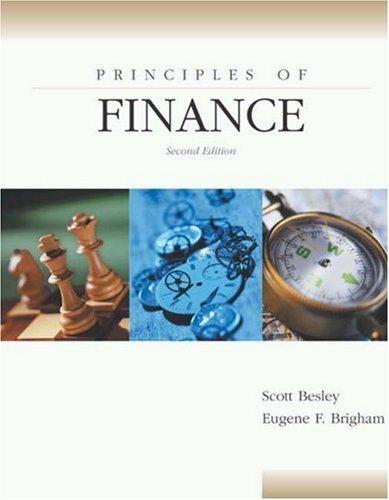Question
Bob graduated from college two years ago with a degree in communications. He has a good job as a Communications Specialist making $50,000 a year.
Bob graduated from college two years ago with a degree in communications. He has a good job as a Communications Specialist making $50,000 a year. Because he took a basic financial class during his sophomore year of college, he understands the importance of creating a plan for his money. So he made it a priority to start saving, and he currently has a savings account of $5,000 built up. Hes motivated to continue putting away money for the future. However, he has $6,500 in school loans left to pay. Hes already paid off $8,500 since finishing college. Just like with his savings, hes being aggressive and paying more than the minimum payments each month. Bob plans to be debt-free in 15 months.
1. Should he continue to pay extra on the student loan and get it paid off in his desired time frame? If he does this, he plans to continue contributing to his savings account at the same time.
2. Or, should he stop putting money into savings and put all of his extra cash toward the student loan? If he does this, how much more quickly will he have the student loan paid off?
3. Compare and contrast other options that Bob has available to him.
Step by Step Solution
There are 3 Steps involved in it
Step: 1

Get Instant Access to Expert-Tailored Solutions
See step-by-step solutions with expert insights and AI powered tools for academic success
Step: 2

Step: 3

Ace Your Homework with AI
Get the answers you need in no time with our AI-driven, step-by-step assistance
Get Started


